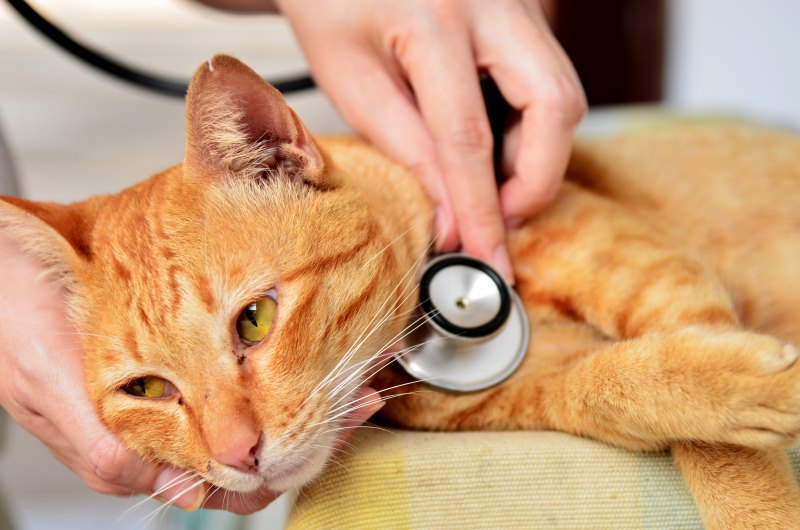The 10 Most Common Health Problems in Cats
As a cat owner, it’s essential to be aware of the common health problems that can affect your feline friend. While every cat is unique, some health issues are more prevalent than others. In this article, we’ll explore the top 10 most common health problems in cats, including symptoms, causes, and treatment options.
1. Urinary Tract Infections (UTIs)
Urinary Tract Infections (UTIs) are a common problem in cats, particularly in males. Symptoms include:
- Straining to urinate
- Blood in the urine
- Frequent urination
- Whining or meowing while urinating
Causes: UTIs are often caused by bacterial infections, kidney stones, or blockages in the urinary tract.
Treatment: Antibiotics, anti-inflammatory medication, and dietary changes can help treat UTIs.
2. Dental Disease
Dental disease is a common problem in cats, caused by tartar buildup, gum disease, and tooth decay. Symptoms include:
- Bad breath
- Yellow or brown teeth
- Difficulty eating
- Swollen gums
Causes: Poor oral hygiene, genetics, and diet can contribute to dental disease.
Treatment: Regular dental cleanings, tooth brushing, and dietary changes can help prevent and treat dental disease.
3. Hyperthyroidism
Hyperthyroidism is a common endocrine disorder in cats, caused by an overactive thyroid gland. Symptoms include:
- Weight loss
- Increased appetite
- Hyperactivity
- Increased thirst and urination
Causes: Hyperthyroidism is often caused by a benign tumor on the thyroid gland.
Treatment: Medication, surgery, and dietary changes can help manage hyperthyroidism.
4. Diabetes Mellitus
Diabetes is a common endocrine disorder in cats, caused by a lack of insulin production or insulin resistance. Symptoms include:
- Increased thirst and urination
- Weight loss
- Lethargy
- Increased appetite
Causes: Diabetes is often caused by genetics, obesity, or other underlying health issues.
Treatment: Insulin therapy, dietary changes, and lifestyle modifications can help manage diabetes.
5. Arthritis
Arthritis is a common musculoskeletal disorder in cats, caused by joint inflammation and degeneration. Symptoms include:
- Stiffness
- Pain
- Limited mobility
- Limping
Causes: Arthritis is often caused by genetics, obesity, or joint trauma.
Treatment: Pain management, physical therapy, and dietary changes can help manage arthritis.
6. Heart Disease
Heart disease is a common cardiovascular disorder in cats, caused by heart valve disease, cardiomyopathy, or coronary artery disease. Symptoms include:
- Coughing
- Difficulty breathing
- Lethargy
- Pale gums
Causes: Heart disease is often caused by genetics, obesity, or other underlying health issues.
Treatment: Medication, surgery, and lifestyle modifications can help manage heart disease.
7. Kidney Disease
Kidney disease is a common renal disorder in cats, caused by chronic kidney failure or acute kidney injury. Symptoms include:
- Increased thirst and urination
- Weight loss
- Vomiting
- Lethargy
Causes: Kidney disease is often caused by genetics, age, or other underlying health issues.
Treatment: Dietary changes, medication, and lifestyle modifications can help manage kidney disease.
8. Obesity
Obesity is a common metabolic disorder in cats, caused by overeating or a lack of exercise. Symptoms include:
- Weight gain
- Difficulty breathing
- Joint pain
- Increased risk of other health issues
Causes: Obesity is often caused by genetics, overfeeding, or a lack of exercise.
Treatment: Dietary changes, exercise, and lifestyle modifications can help manage obesity.
9. Feline Lower Urinary Tract Disease (FLUTD)
FLUTD is a common problem in cats, caused by inflammation or infection of the urinary tract. Symptoms include:
- Straining to urinate
- Blood in the urine
- Frequent urination
- Whining or meowing while urinating
Causes: FLUTD is often caused by bacterial infections, kidney stones, or blockages in the urinary tract.
Treatment: Antibiotics, anti-inflammatory medication, and dietary changes can help treat FLUTD.
10. Feline Immunodeficiency Virus (FIV)
FIV is a common viral disorder in cats, caused by a virus that attacks the immune system. Symptoms include:
- Weight loss
- Lethargy
- Increased susceptibility to infections
- Swollen lymph nodes
Causes: FIV is often transmitted through biting or scratching.
Treatment: There is no cure for FIV, but antiretroviral therapy and lifestyle modifications can help manage the disease.
Conclusion:
As a cat owner, it’s essential to be aware of the common health problems that can affect your feline friend. By understanding the symptoms, causes, and treatment options for these health issues, you can help keep your cat healthy and happy. Remember to schedule regular veterinary check-ups, provide a balanced diet, and maintain a safe living environment to prevent or manage many of these health issues.






